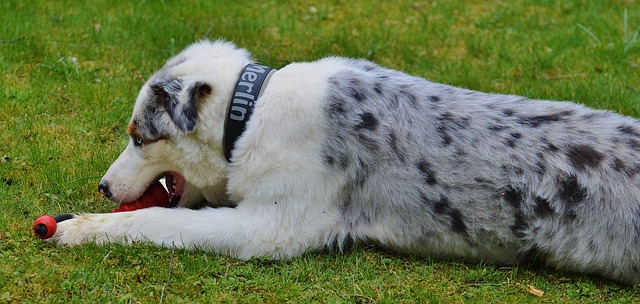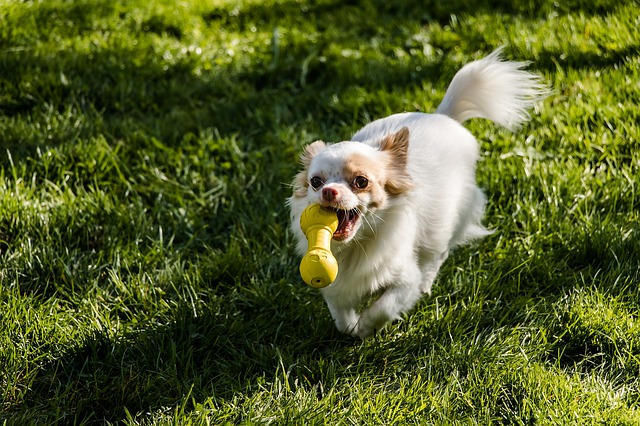
Did you know that cognitive dysfunction syndrome, also called dog dementia, affects a large percentage of our fur children? More than a quarter (28%) of all dogs between the ages of 11 and 12 show at least one symptom of cognitive impairment. By the time a dog reaches 15, more than two-thirds (68%) of all dogs show at least one symptom and more than a third (35%) display at least 2 symptoms of cognitive decline. Luckily, there are some things you can do that may help prevent, or at least delay, the onset of cognitive dysfunction in your pup. First, let’s look at the symptoms that your dog may already be experiencing dementia.

Symptoms of dementia
-Confusion, disorientation, getting lost in previously-familiar places
–Anxiety, restlessness, pacing, wandering
-Staring for long periods
-Not coming when called
-Having accidents inside the house
-Barking for no reason
-Obsessively licking themselves
–Increased or decreased appetite
-Sleeping more or less
-Becoming overly needy or a lack of interest in interacting
These symptoms can also be indicators of a variety of other health problems, so a trip to the vet should be done to rule out any other causes of these symptoms.

How can I prevent dementia in my dog?
Studies show that the following things may help delay or prevent canine cognitive dysfunction.
#1 – Exercise
You already know that exercise is important for your dog’s body, but new research shows that it’s good for their mind, too. Even 2 relatively short walks a day can make a big difference in slowing down cognitive decline.
#2 – Feed them a diet rich in antioxidants and omega-3
Studies have shown that dogs that are given more antioxidants and experience behavioral enrichment and cognitive stimulation (see the last item in this list) show a significantly slower rate of cognitive decline than dogs who don’t receive these benefits. Antioxidants can be found in many fresh fruits and vegetables such as berries, leafy greens, sweet potatoes, or carrots (Be sure to read this article on foods never to give your dog first). Omega-3 has been shown to reduce inflammation, a common cause of dementia.

#3 – Keep their minds active
They may say that you can’t teach an old dog new tricks, but keeping your pup’s mind active with new tasks and toys that make them think has been proven to slow cognitive decline. Not sure what sort of toys will help engage your dog’s mind? Here are some of our favorites. Each purchase provides a dog toy for a shelter dog.
Sniff Diggy™ Fun Mental Stimulation Nose Work Mat Confetti Color 12″ x 12″
The Sniff Diggy easy-to-use nose work mat actually provides the same amount of sensory and cognitive stimulation for your pup as a walk around the block! Hide some yummy treats within the fabric strips and let your dog root around for them using his sniffer. He’ll love the activity and you’ll love knowing he’s getting a rewarding mental workout.
Brain Ball by Project Play™ – Treat Dispensing Teaser & Thinker Toy
This treat ball requires your dog to figure out how to get treats out of the ball by rolling it around. Various levels inside the ball make this toy more challenging than it seems! Filling the ball with freeze dried treats or kibble can help keep them active while you’re gone.
Don’t forget the treats!
Try our wholesome, Happy, Healthy™ low calorie training treats with any puzzle toy for a winning combo your senior pup is sure to enjoy!
(H/T: Rodale’s Organic Life, Rover)
The post 3 Things That Can Help Your Senior Dog Avoid Dementia appeared first on iHeartDogs.com.
from iHeartDogs.com https://ift.tt/3ihUfKw data:image/svg+xml,%3Csvg%20xmlns='https://ift.tt/3bEUo7x




No comments:
Post a Comment